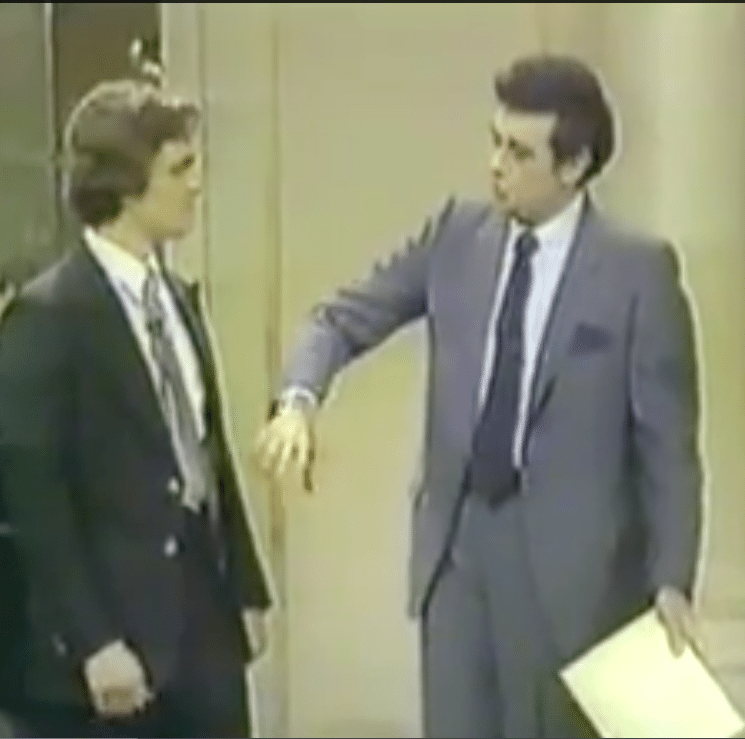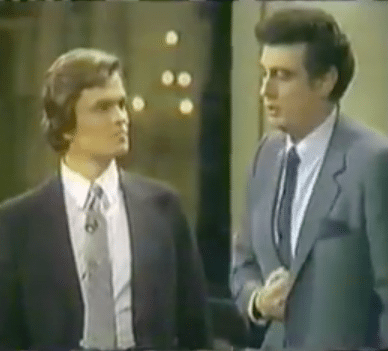Oh, Blow It Out Your Sing-Hole....
Published on July 1st, 2015 by Brad Jenks
← Back To All PostsCornell MacNeil: "Let us take a word commonly used by singers – support. What does it mean? To some people it means absolute rigidity, which will destroy them!"
Jerome Hines: "Support is usually equated with you Italian word appoggio."
C. MacNeil: "Appoggio… Which means setting upon… something completely different from support. We think of support as propping something underneath, which immediately suggests rigidity and tension.... I don't think in terms of support… If you have a boat and you set it on a block of concrete, it's held up… But it's not galleggiando (floating)..."
Great Singers On Great Singing, Jerome Hines
I have never been overly fond of the use of the word "support", and for much of the same reason as Cornell MacNeil expresses in his interview with Jerome Hines. I have even heard this misconception manifest in some corners as the espousal of abdominal tensing for "support" purposes. I rankle slightly less at the use of the term "breath support", which gets at the heart of the matter a bit more in my view. Francesco Lamperti, in his book The Art of Singing, quotes the famous 18th century castrato and teacher Gasparo Pacchiarotti, "He who knows how to breathe and pronounce well, knows how to sing well." Pauline Viardot, highly admired 19th century singer, pianist, composer, and teacher (as well as daughter of famed tenor and teacher Manuel Garcia), said in her treatise An Hour of Study, "Respiration, being the foundation of vocal art, cannot be too carefully and conscientiously attended to...... Without a profound study of respiration we can never become complete masters of our voice and our singing." But if there is anything to be surmised from what we have so far, it is that this breathing is an active thing, not a passive one.
This is a significant point because most exhalation throughout our daily lives is passive. The primary breathing muscle, the diaphragm, is fundamentally an inhalation-only muscle (despite some antagonistic capacity). With most exhalation being merely a release of the air that has been drawn in, we are left with the need for this "profound study" because, even in acknowledging the breath, one is still left to work out how the muscles are involved in the breathing mechanism and what that feels like to develop and coordinate them in an athletic, flexible, efficient, and even elegant manner.
It is not uncommon, therefore, to run across different espoused methods, and different descriptions of this "support", many of which claim to be correct to the exclusion of others. I believe that I understand at least part of the reason for this variety now. Now, I am not a relativist by any means, so first let me clarify - I firmly believe that singing is action of expulsion. With our amazing propensity for muscular tension, I believe it to be very rare indeed that a person ever need to be trained to slow, or measure the exhale (breath loss is far more frequently an adduction issue), and typically require reminding to maintain steady outward breath flow. That said, there is still considerable diversity of approach. And this brings me to the two things that I believe with great confidence today-
1) No matter how common the function, or how similar the effect, there is good reason that everyone might feel the focus differently- Some people are tall, some short, some muscle-bound, some slight, some athletic, others less so, some well-coordinated, while others could manage to fall down from a seated position. As a result, people will feel things differently. And this will include their strengths and their weaknesses. For some people, focusing on a strength will prove reliable, for others, focusing on a weakness will prove necessary. For some, something is working right and they must focus on a less reliable part of their anatomy. For others, something will be hard to feel at all and may require a different focus altogether.
This is why Joan Sutherland promoted a lower abdominal tuck, why Marilyn Horne said to squeeze your butt cheeks, why Cornell MacNeil said he felt the back and the floating ribs were undervalued, but also why Placido Domingo, Jean De Reszke, and Luciano Pavarotti spoke of the strength of structural maintenance in the (upper) abdomen, (one of the more common definitions of appoggio, and also the reason for the persistent mistake of the "use of the diaphragm" during the sung phrase.) It is why many voice scientists maintain the absolute requisite of good posture with shoulders comfortable back as a primary factor in support, and why Lilli Lehmann and Luisa Tetrazzini spoke of "pressing the breath against the chest."
In all of these cases, you will notice, the area of the upper torso, the ribcage, the shoulders, etc. is not allowed to collapse, and thereby impede breathflow. But the area of the lower torso, all the way to the buttocks and what my own teacher used to call "your most personal muscles" are strong and active, but most importantly flexible and prepared to contract. (Note: this is a gradual contraction, like moving your hand from arm's length to touching your shoulder, not like flexing to display your bicep.) If we observe this, we are able to see that all of them describe a different part of the same puzzle. It takes this necessary stepping-back in order to not be confused into thinking that they are all doing it in their own way, but rather, they are doing it essentially the same, with a different focus based on the signals they are receiving from their bodies and how their brains process them best.
2) Secondly, and perhaps most importantly, I have learned this- You cannot afford to not start thinking about this right now. The coordination of your breath with your vocal action is the health of your singing, and just like any other physical conditioning it is a long process of both understanding and maintenance. With all the music, text, and drama to consider - Breath Support, not actively cultivated and made a top priority, will be forgotten and deteriorate. It is so easy to get absorbed in the sounds, concerned about the myriad other factors that the audience will hear, while only you will feel your body and breath. But too much rides on it to ignore it, and it will not happen on its own in any meaningful way. So, give some focused time to it, each time you practice. Breathe it in, and sing it out, and seek that balance that means you are singing with your whole body.







